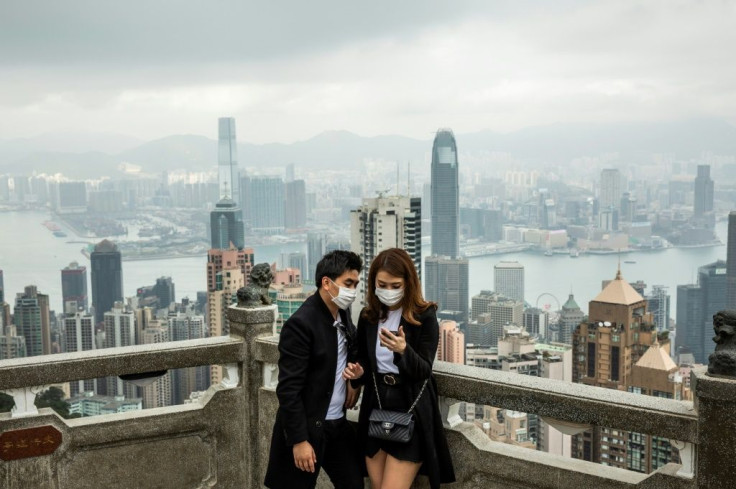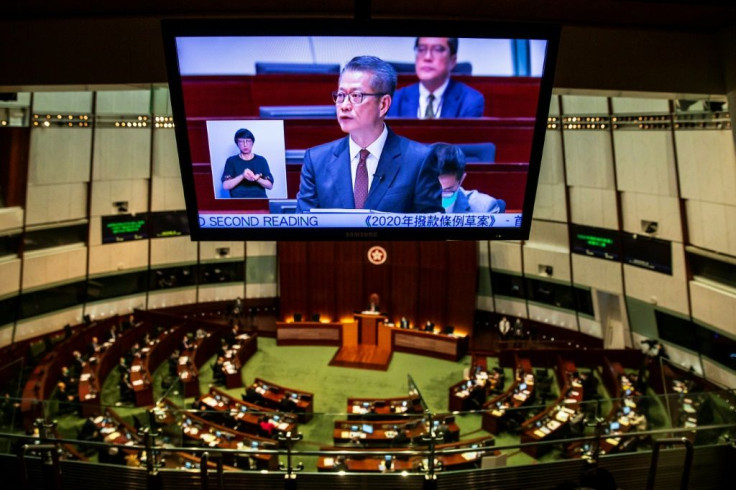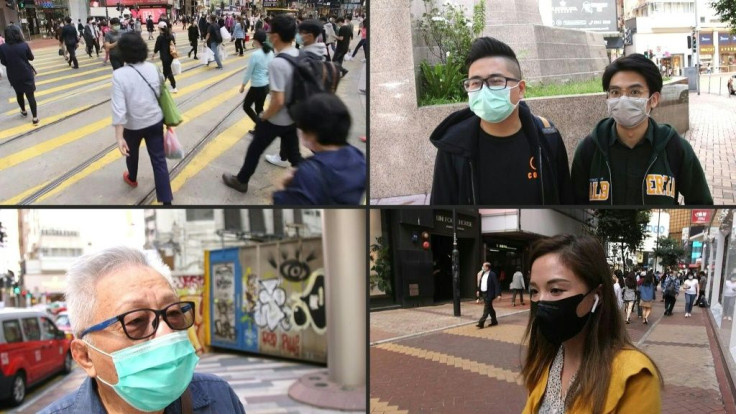Hong Kong To Give Big Cash Handouts As Economy Reels From Virus

Hong Kong's government said Wednesday it will give a HK$10,000 ($1,280) handout to every permanent resident in a bid to jump-start an economy in recession after months of protests and hit further by the coronavirus outbreak.
Financial Secretary Paul Chan unveiled the cash gift in the annual budget, committing a colossal HK$120 billion to help alleviate the worst economic downturn the international financial hub has faced in a decade.
Hong Kong boasts significant fiscal reserves of more than HK$1 trillion built up over the boom years, a stockpile that the government is now tapping into.
The cash handout to around seven million permanent residents will cost HK$71 billion, but officials hope consumers will plough much of the money back into local businesses.
"Making good use of fiscal reserves to support enterprises and relieve people's hardship is certainly in line with our people's expectations," he said, adding the cash handout was for permanent residents aged 18 or above, including those residing overseas.
Chan said the stimulus and lower revenues would push government coffers into the red by a record HK$139.1 billion in the coming fiscal year, the first deficit in 15 years.

Hong Kong's economy is reeling from the US-China trade war, months of pro-democracy protests last year and now the coronavirus: a triple whammy Chan described as "exceptionally austere".
Other measures announced in the budget included profits and salary tax breaks, as well as low-interest loans for businesses struggling to pay staff wages.
The tourist, restaurant and retail sectors have been hit especially hard with bankruptcies soaring and traditionally low unemployment rising.
"Hong Kong's economy is facing enormous challenges this year," Chan said, predicting a range of 0.5 percent growth to a 1.5 percent contraction this year.

The recession is a major headache for the city's unelected pro-Beijing leader Carrie Lam, who currently boasts record-low approval ratings after facing down huge democracy protests.
The massive rallies and regular clashes with police that became a weekly fixture last year were dying down before the virus outbreak began. But the virus has comprehensively ended mass gatherings.
Yet public anger still simmers in a city where neither its leadership nor Beijing have addressed the issues fuelling years of rising resentment.
In Wednesday's budget, the police received a 25 percent bump to HK$25.8 billion.
Neighbouring Macau often announces universal cash handouts to residents in its annual budget, while Hong Kong has historically been more reticent.
The last one for all residents was in 2011, three years after the global crash sparked the city's last recession.
The last time Hong Kong ran a deficit was between 2001 and 2004.
Chan said the reserves should see the city through the current crisis
"In the medium term, the economic outlook of Hong Kong remains positive," he said.
© Copyright AFP {{Year}}. All rights reserved.




















